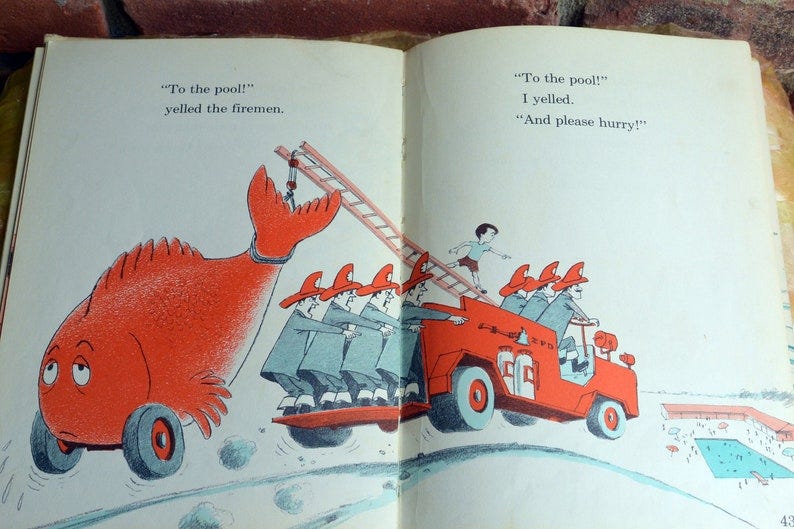PRESENTED BY A COLOSSAL CARROT
As cold rain pelted the sidewalk in front of the Cannon House Office Building this morning, Reps. Rashida Tlaib (D-Mich.) and Ro Khanna (D-Calif.) joined climate activists in an emergency rally against including Sen. Joe Manchin’s (D-W.Va.) pipeline permitting plan in must-pass legislation. The “No Dirty Deal” rally opposed the effort of President Joe Biden and Democratic congressional leadership to put Manchin’s plan into the nearly-$1-trillion National Defense Appropriations Authorization Act.
House Natural Resources chair Raúl Grijalva (D-Ariz.) is particularly incensed that the Manchin plan may come up for a vote on Wednesday, the day of Rep. Don McEachin’s funeral service in Richmond, Virginia. Grivalva and McEachin worked together on the Environmental Justice for All Act, and worked together to stop the Manchin deal in September before McEachin’s untimely passing.
Thanks to the vocal opposition of progressive Congressional leaders, Senate Majority Leader Chuck Schumer (D-N.Y.) and lame-duck Speaker Nancy Pelosi (D-Calif.) having second thoughts about including the Manchin deal, Maxine Joselow reports:
“As of Monday evening, Democratic leaders had not made a final decision about whether to include Manchin’s bill in the new text of the NDAA, which had not yet been released.”
While the NDAA can usually pass with broad Republican support in the House, which weakens the leverage of the House progressive caucus, the Senate is another matter. Sen. Tim Kaine (D-Va.) still opposes the Manchin plan’s inclusion of mandated approval of the fracked-gas Mountain Valley Pipeline. Although Sen. Lisa Murkowski (D-Alaska) supports the Manchin plan, few Senate Republicans have changed their minds from September, when they held fast in support of an even more aggressive stripping away of environmental regulations than is on the table now.
Frankly, I doubt that Democratic leadership can offer Republicans a big enough carrot to get them to sign on.

It’s election day in Georgia, with the runoff between Democratic Sen. Raphael Warnock and Herschel “Good Emissions” Walker.
Judd Legum has on Semafor’s firing of Bill Spindle after he objected to their Chevron sponsorship of his climate newsletter and the systemic problem of fossil-fuel propaganda in our news media.
December is serving up baked Alaska, with freakishly warm weather across the Arctic.
Rep. Jim Comer (R-Ky.), the incoming chair of the House Committee on Oversight and Government Reform, made his agenda clear on Sunday with full-throated advocacy of the fossil fuel industry, E&E’s Kelsey Brugger writes. Comer claims that President Biden has “waged a war on American-made energy” by “canceling the Keystone XL pipeline, implementing a ban on oil drilling on federal lands, and draining the Strategic Petroleum Reserve.”
While none of this rhetoric is new, with the House going to Republicans in January, the likes of Comer will use their subpoena powers to “hold the Biden Administration responsible for recklessly attacking a critical industry that provides the American people affordable energy and good-paying job opportunities,” by which he means the industry threatening human civilization with its continued existence.

This afternoon, House Science chair Eddie Bernice Johnson (D-Texas) chairs a hearing with Dr. Karen Marrongelle, chief operating officer of the National Science Foundation, Kathleen Naeher, COO of Antarctic science contractor Leidos, and scientists Dr. Angela V. Olinto and Dr. Anne Kelly, a rare all-women panel of Congressional witnesses. Unfortunately, the hearing is about sexual harassment and assault at our nation’s Antarctic research stations.
Rep. Katie Porter (D-Calif.) chairs a hearing on overcrowding at our national parks, with Jeff Bradybaugh, superintendent of Zion National Park, Dr. Will Rice, outdoor recreation management expert at University of Montana, and Republican witness Hannah Downey from the right-wing Property and Environment Research Center.
Also this afternoon, the soon-to-be-mothballed House Select Committee on the Climate Crisis will hold one last hearing, looking back at what the committee sees as policy accomplishments—such as the Inflation Reduction Act—and discussing what is needed. The witnesses are Greg Wetstone, president of the American Council on Renewable Energy, international climate policy expert Alice Hill, Dana Johnson from WE ACT for Environmental Justice, Rev. Dr. Jessica Moerman, of the Evangelical Environmental Network, the AFL-CIO Industrial Union’s Brad Markell, and Dr. Michelle Michot Foss, a long-time oil and gas industry executive.
Hearings on the Hill:
1 PM: House Science, Space, and Technology
Building a Safer Antarctic Research Environment1 PM: House Natural Resources
Oversight and Investigations
Lessons from the Field: Overcrowding in National Parks1:15 PM: House Climate Crisis
Solving the Climate Crisis: Key Accomplishments, Additional Opportunities, and the Need for Continued Action
Of course, we can’t have a carrot without a stick.
Thanks for subscribing and spreading the word. DMs are open—@climatebrad on Twitter or @climatebrad@mastodon.social






